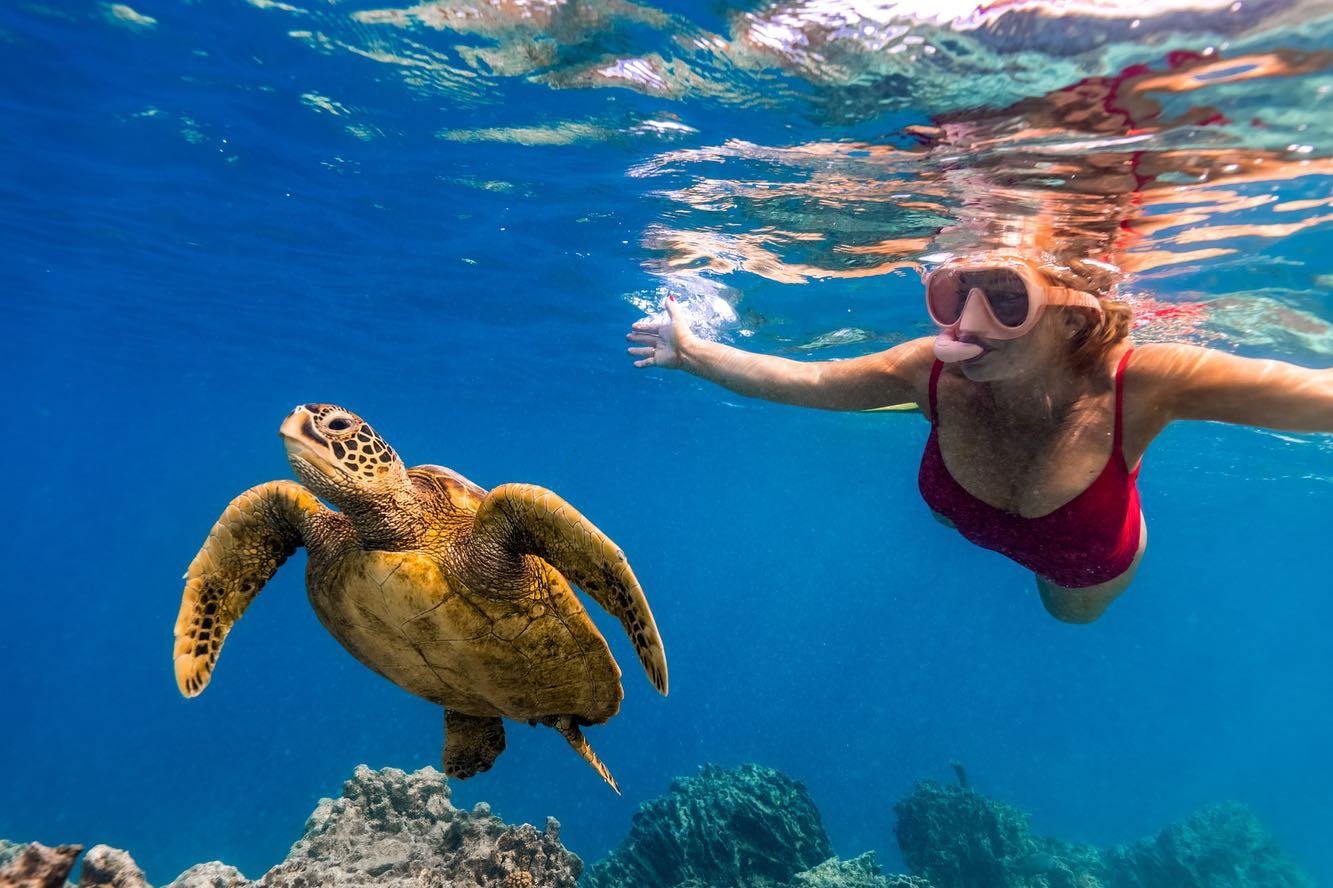Operator raises concerns over increased motorised boats in lagoon
Tuesday 5 March 2024 | Written by Losirene Lacanivalu | Published in Environment, Local, National

Nine turtle tour operators have agreed and signed a Memorandum of Understanding (MOU) aiming to protect and preserve the marine environment and safety of their guests. Picture: CHARLOTTE PIHO PHOTOGRAPHY/24022624/24022625
A turtle tour operator has raised concerns that there has been an increased use of motorised boats in the Avaavaroa Passage.
Josh Utanga of Snorkel Cook Islands says that post-Covid, there has been an increase in the use of motorised boats by operators claiming they are used as safety vessels.
However, Cook Islands Tourism director of destination development Brad Kirner says the only rescue he is aware of at that passage was last year, and they were for Snorkel Cook Islands customers who were rescued by other operators using stand-up paddle boards or those boats.
Kirner says from a visitor safety perspective they agree that any time people are in the water and boats are around, that does pose a danger, but they believe the extremely slow manoeuvring of the boats combined with the propeller guards does mitigate the risk.
He said the boats are also a main source of safety for potential rescue.
But Utanga highlighted that visitors have been in touch with them asking whether motorised watercrafts were in the area and if there is a designated snorkelling area and swimming area, tide signage, the nearest hospital, and safety equipment that has been tested to meet New Zealand standard requirements and certifications.
He said these types of queries have become common in the last six months, with Cook Islands safety and environment standards a cause for concern.
“The primary purpose of the boats is to use them as boat taxis to be able to service as many customers with multiple tours in the small safety window of the tide,” claims Utanga.
“The boats allow high risk customers that are young children or novice swimmers to participate, adding to the risk in our workplace.”
Utanga claimed that in a recent drowning (last year) none of these boats were available to be used for the rescue.
“Nor do any of those driving these vessels offer any qualifications and experience to operate them in an emergency situation.”
He also raised concerns that the use of powered watercraft also poses an environmental risk through petrol fumes run-off, underwater noise pollution, and vibration.
“The consequences of boat use within the lagoon have already resulted in a turtle dying last September here in Rarotonga.
“The use of boat taxis within close proximity to snorkellers in the water is an accident waiting to happen. Only last year a tourist was hit by a boat while snorkelling in Fiji.”
Utanga said they have been asking Cook Islands Tourism since 2018 to “protect the industry and work with the established operators that built the industry”.
Last month, Cook Islands Tourism and nine turtle tour operators signed a Memorandum of Understanding (MOU) aimed at protecting the marine environment and ensuring guest safety. Snorkel Cook Islands refused to sign the MOU, arguing it’s not the best approach for achieving safety and sustainability.
Kirner says motorised boats in the lagoon area are an absolute concern, and one of the good examples of an operator who chose to sign up to the MOU is that they have installed propeller guards, a great initial step.
Kirner said the Ministry of Transport and maritime operators were engaged and are part of the workshop and discussion.
“As per the MOU, so long as the operators are abiding by the Ministry of Transport guidelines and rules, that’s great.”















































